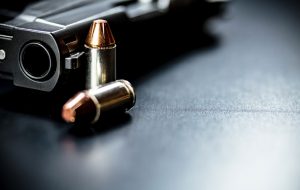banglanews24.com
DHAKA: India and Bangladesh are scheduled to sign the much-awaited extradition treaty next month in Dhaka.
However, Ulfa general secretary Anup Chetia will not be handed over to India until his petition seeking asylum in a third country other than India and Bangladesh is disposed of by the Supreme Court of Bangladesh.
Chetia is currently lodged in jail at Rajashahi in “protective custody” provided by the court after completing a seven-year jail term there.
A source said the extraditable offences include terrorism, murder and other serious crimes, but the treaty will also have a refusal clause, which will allow the host country to refuse extradition of a person if he is considered a threat to the national security of the country.
“Under this clause, if Bangladesh thinks Chetia could be a threat to its national security, it may not hand him over to India at all even after the court denies him asylum,” the source said.
A key representative of India, associated with Ulfa peace talks, said, “Chetia`s extradition is not as simple as it looks. This is a purely legal matter as he has a petition seeking asylum still pending in a Bangladesh court.”
He said, “The court cannot order asylum for Chetia, but it can issue a notice to the Bangladesh government to reply to his petition. If the Bangladesh government does not grant asylum to Chetia and the court accepts the decision of the Bangladesh government, then getting Chetia back will be easier. But if the court refuses to accept the Bangladesh government`s decision, the whole issue may turn into a long legal battle and Chetia will continue living in protective custody in Bangladesh jail.”
“The Bangladesh government cannot take any unilateral decision on handing over Chetia to India unless the court allows it,” he added.
Chetia was first arrested in 1991 in Assam, but was released to take part in the first peace talks with the Centre and then Prime Minister PV Narasimha Rao. The talks failed. Chetia escaped to Bangladesh, where he was arrested along with two other Ulfa members on December 21, 1997 for illegally carrying foreign currencies and a satellite phone. Initially, he was sentenced to a six-year jail term till August 25, 2004, but his detention was extended by another six months after he failed to pay a fine.
The Bangladesh government had earlier rejected Chetia`s prayers for political asylum in 1998 while he was still serving his jail term. After a human rights` body challenged the government`s decision, a Bangladesh court issued a rule to Bangladesh government in 2003 asking why he should not be given asylum and the rule has not yet been disposed of. The case is pending in the court and Chetia, on court order, was allowed to stay in jail for security reasons till his appeal for political asylum was disposed of.
A source said Chetia`s extradition can also be possible if he chooses to withdraw his petition and agrees to return to Assam.



